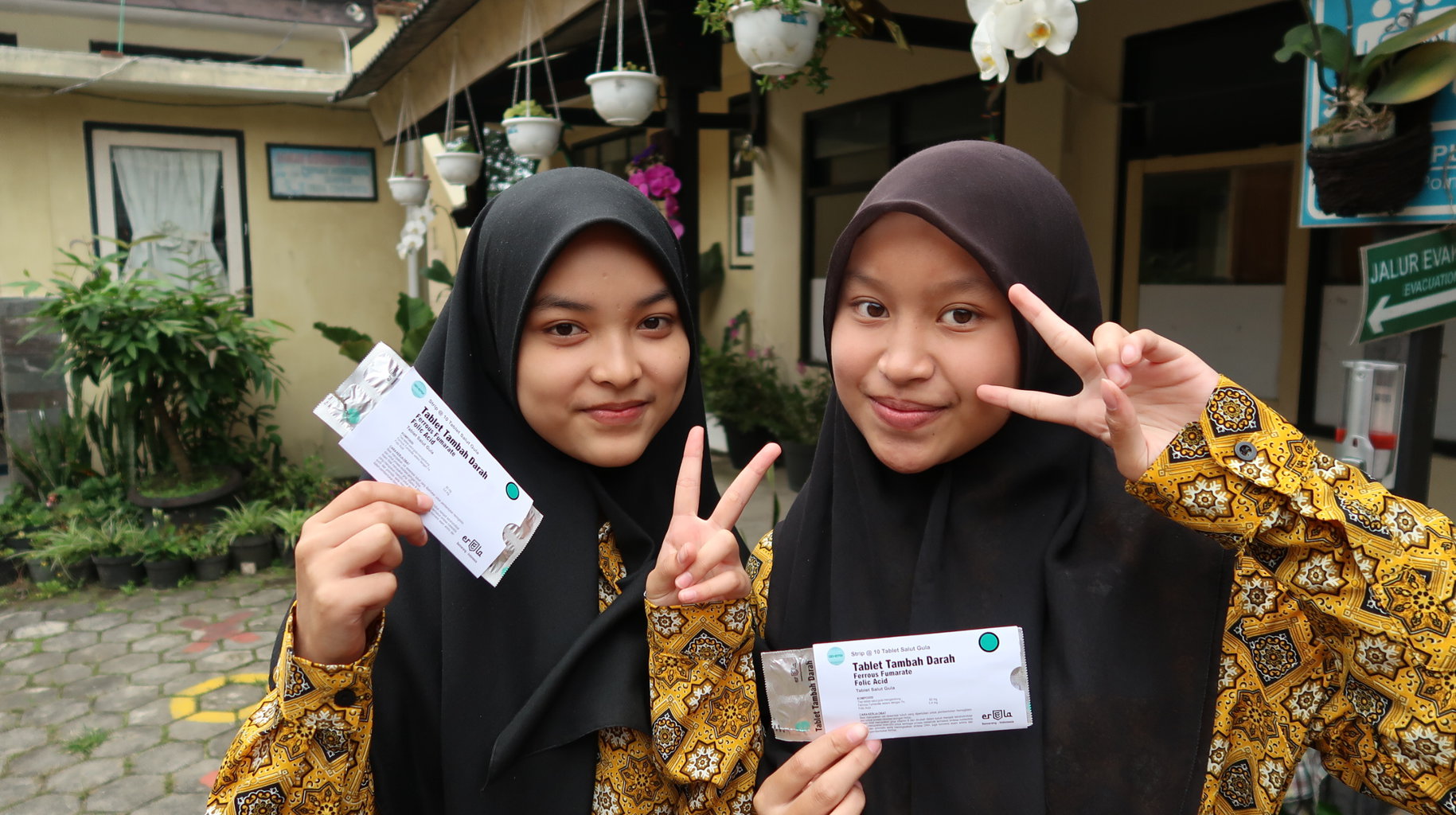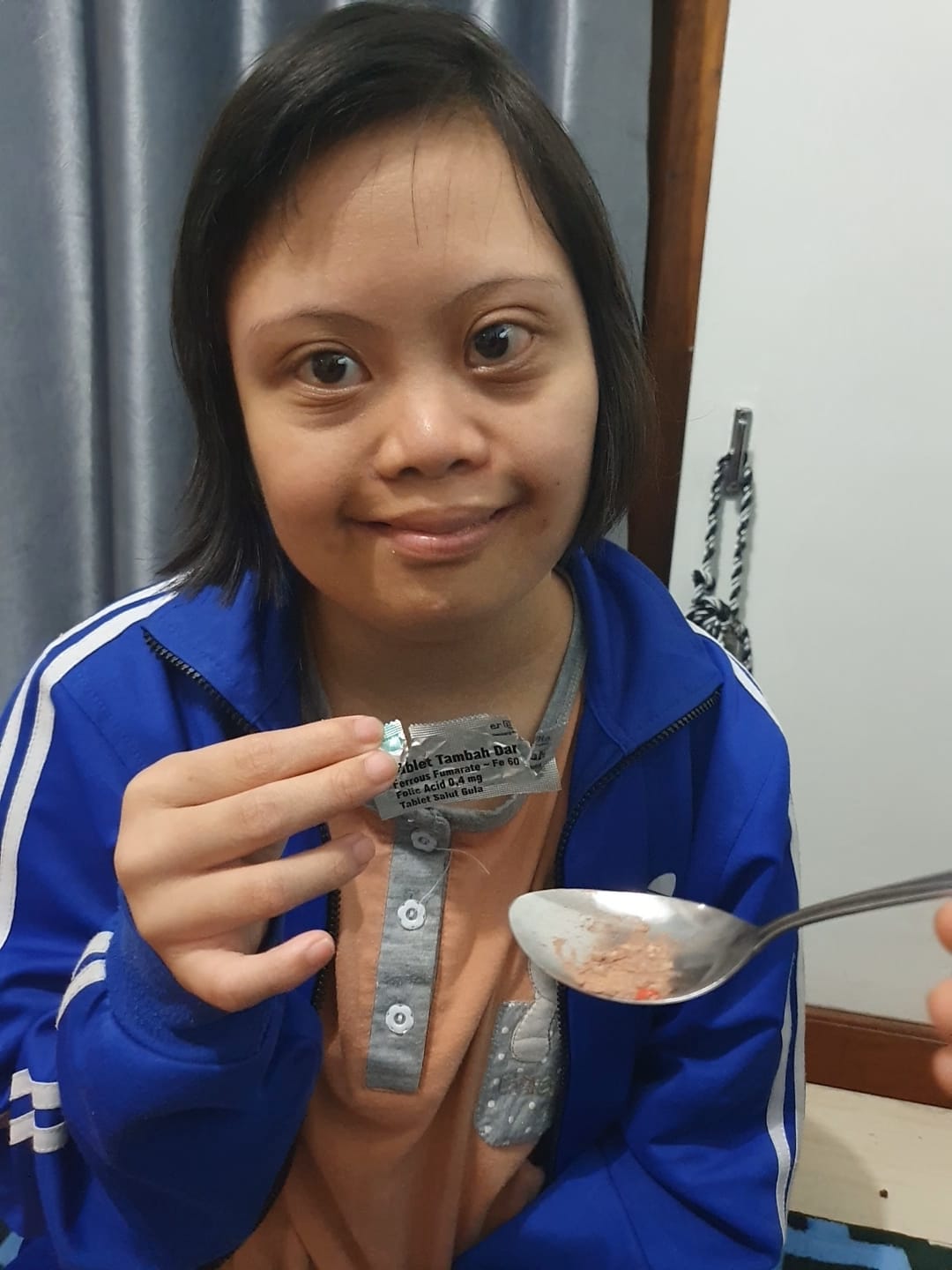Field Stories
In her words: Voices from girls around the world
October 5, 2023
Prioritizing adolescent nutrition for students with disabilities
Inclusive access to nutrition programming is important for all adolescent girls. Find out how our adolescent nutrition program supports students with disabilities in Indonesia.
Posted on January 9, 2023
In Indonesia, students with disabilities are being reached with adolescent nutrition programming through the Better Investment for Stunting Alleviation (BISA) project. In partnership with Save the Children and working closely with the Indonesian government, the project aims to ensure positive and sustainable improvements in health and nutrition.
Part of the project’s mandate is to provide in-school adolescent girls with nutrition education and anaemia prevention in select districts. This includes the active participation of schools for children with special education needs and disabilities, known as Sekolah Luar Biasa (SLB) schools in Indonesia. If services and systems are not adapted to be accessible, children and adolescents with disabilities may not get equitable access to good nutrition.

Eny Koestien is the principal of one such school in Lembang, West Java province. The school includes students with physical disabilities, developmental disabilities, hearing loss, autism and attention deficit hyperactivity disorder. The adolescent nutrition program is supported by the local puskesmas, or community health centre, which provides the supply of weekly iron and folic acid supplementation (WIFAS) to prevent anaemia and helps spread nutrition education within the school. The school coordinates closely with parents and submits data on consumption to the health centre.
Koestien said she is grateful that her students have the opportunity to access the WIFAS program as it contributes to their ongoing health and wellbeing. “When the teachers and puskesmas staff briefed the parents about child and adolescent nutrition, anaemia, and the WIFAS program, they were all very enthusiastic,” Koestien shared. “They asked a lot of questions and were very supportive of the program.”
“When the teachers and puskesmas staff briefed the parents about child and adolescent nutrition, anaemia, and the WIFAS program, they were all very enthusiastic.
— Eny Koestien, School Principal
15-year-old Arsyifa and her friend Nabila are both students who attend the school and take part in the adolescent nutrition program. Both girls are hearing impaired and share their experience using sign language, translated by their teacher Tri Rahayu. Arsyifa said she never forgets to take her WIFAS tablets as it has become routine for her. Nabila said that while she sometimes forgets on her own, her mother readily reminds her. Rahayu advised her students they can also support each other: “Nabila and Arsyifa, you can remind each other by consuming the WIFA supplement together through a video call,” she told them.
Rahayu is a strong advocate for adolescent nutrition within the school. She has a bachelor’s degree in special education and 22 years of teaching experience. Her goal is to help her students find acceptance in society and realize their full potential. “I find happiness when my students shine,” said Rahayu. “They make me proud.”

During the lockdown imposed in the wake of the COVID-19 pandemic, the WIFAS program was interrupted as schools closed. Now that schools have reopened, students are given the supplements with instructions to consume them every Friday night at home. Rahayu counsels and trains parents on supportive mechanisms to help engage their children and facilitate consistency in WIFAS consumption.
“I always remind the parents through the WhatsApp group every Friday and also request them to send photos of their children taking the supplement,” she said.
Consistency in consuming WIFAS as part of a regular routine is important. According to the BISA baseline survey in 2020, the anaemia prevalence was 68.8% in West Bandung, West Java and 82.6% in Sumedang, West Java. This is categorized as a severe public health problem according to the World Health Organization (2017), since the prevalence is higher than 40%.
Nutrition International is supporting the Indonesian government to change that. Principals and teachers like Koestien and Rahayu are examples of what it looks like to create inclusive programming and ensure equitable access for all adolescent girls.